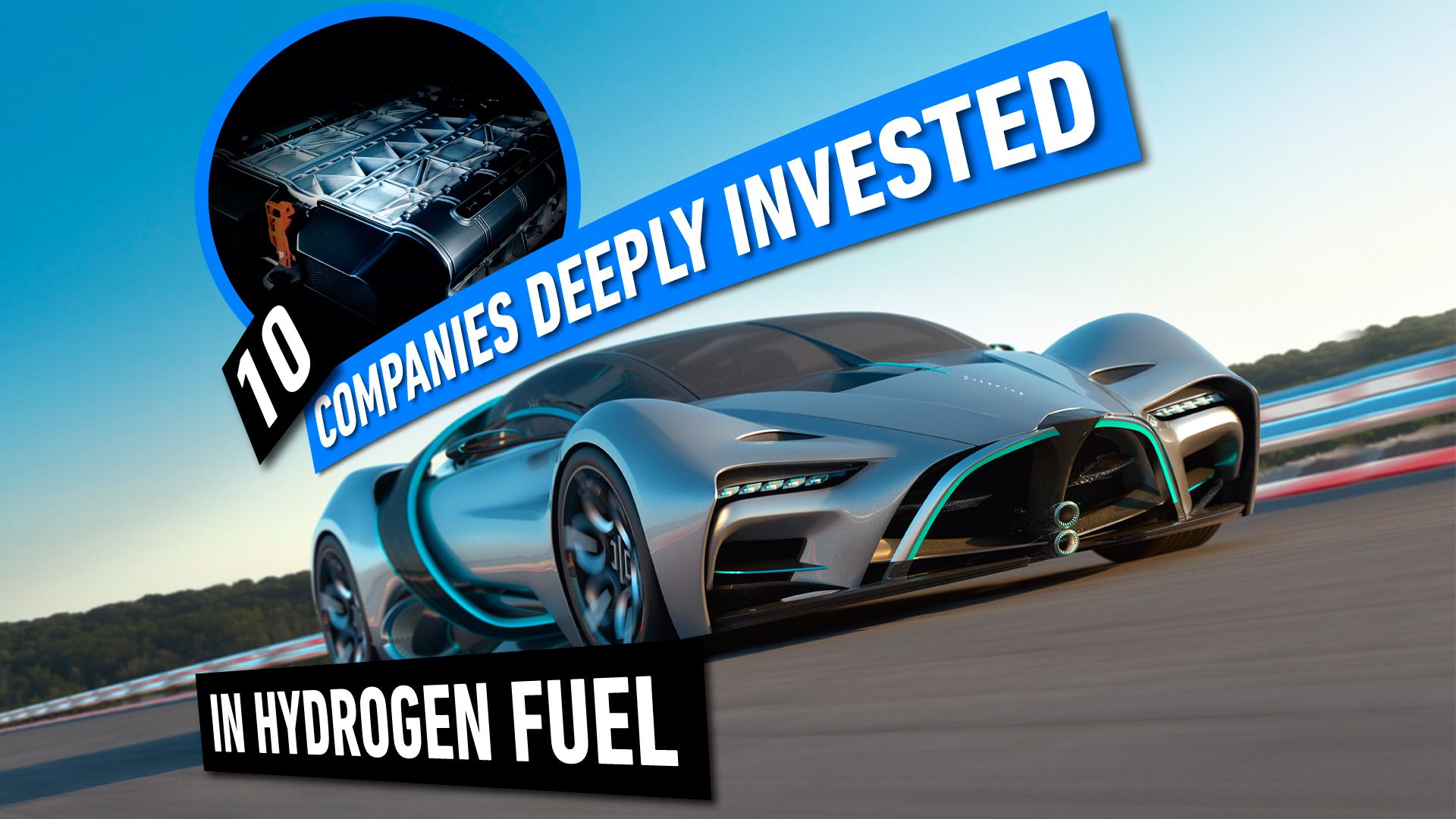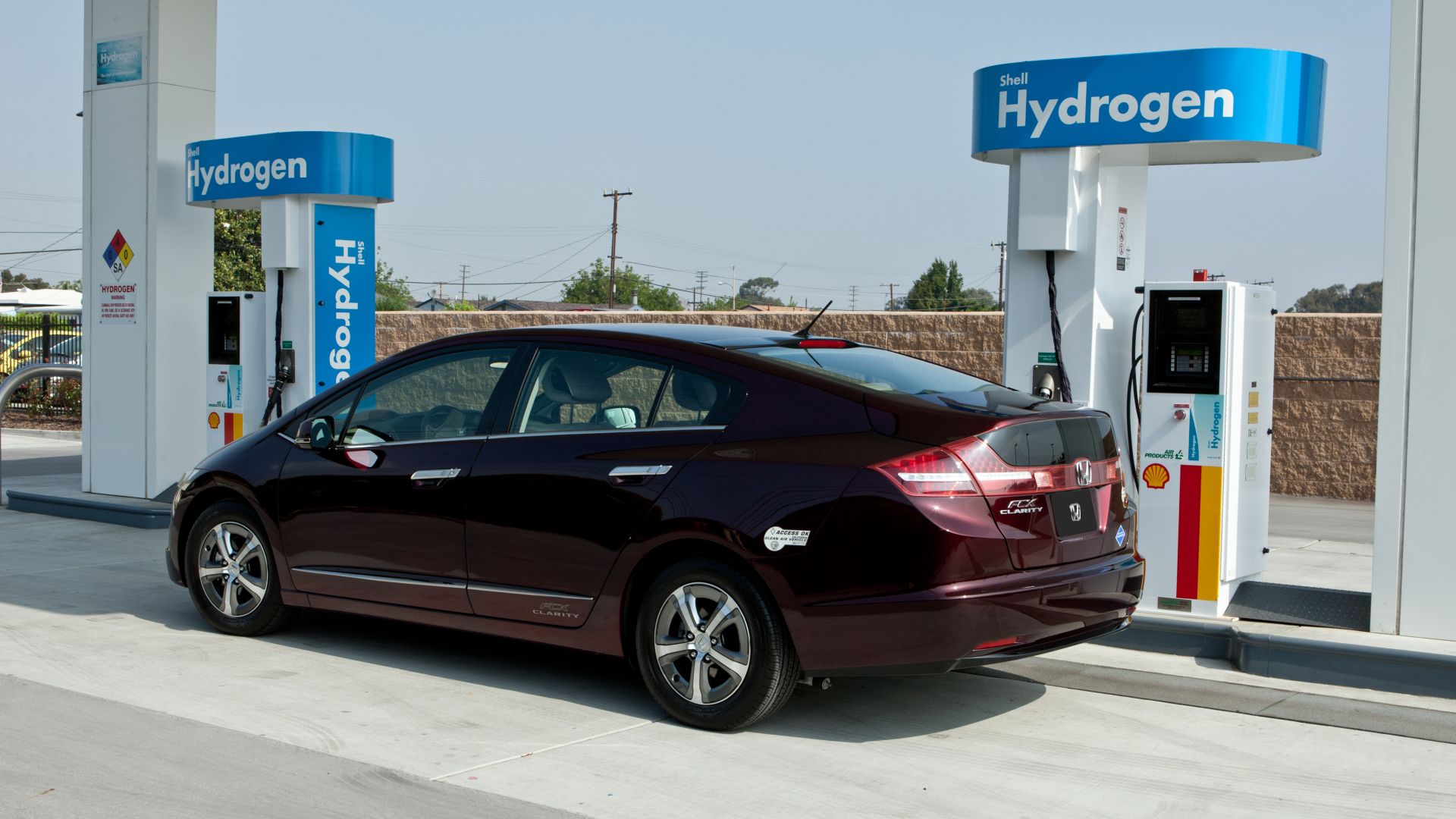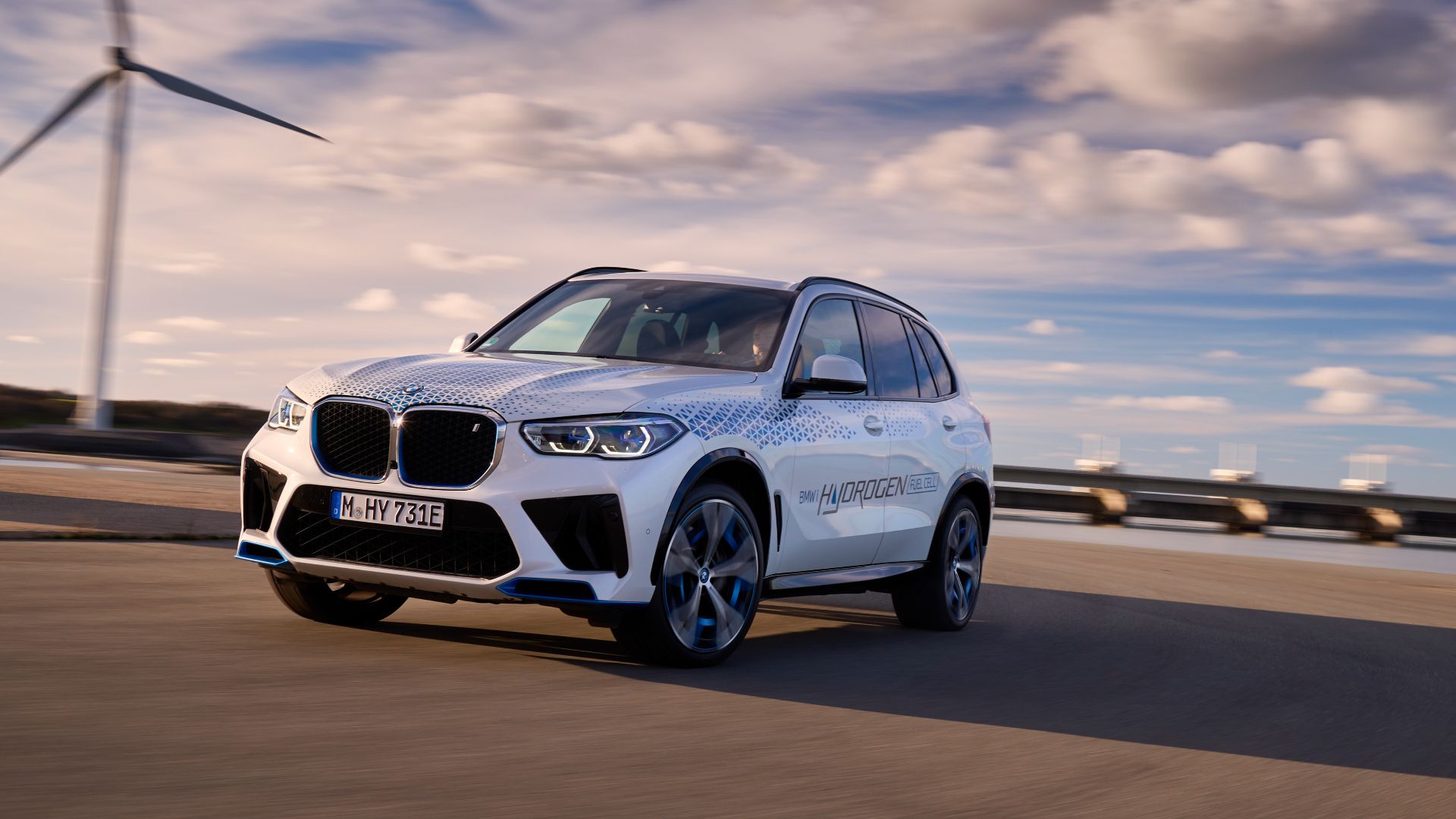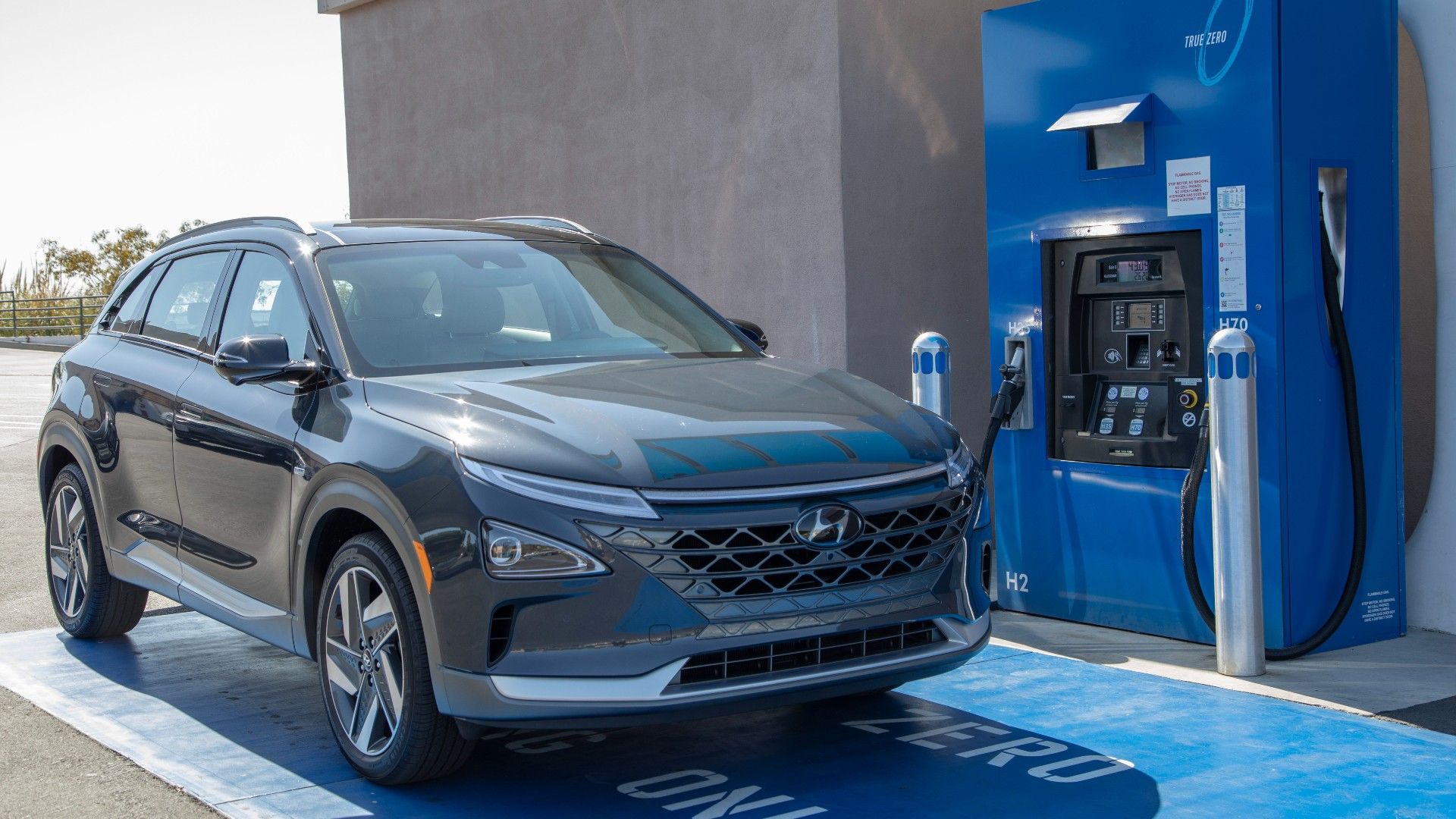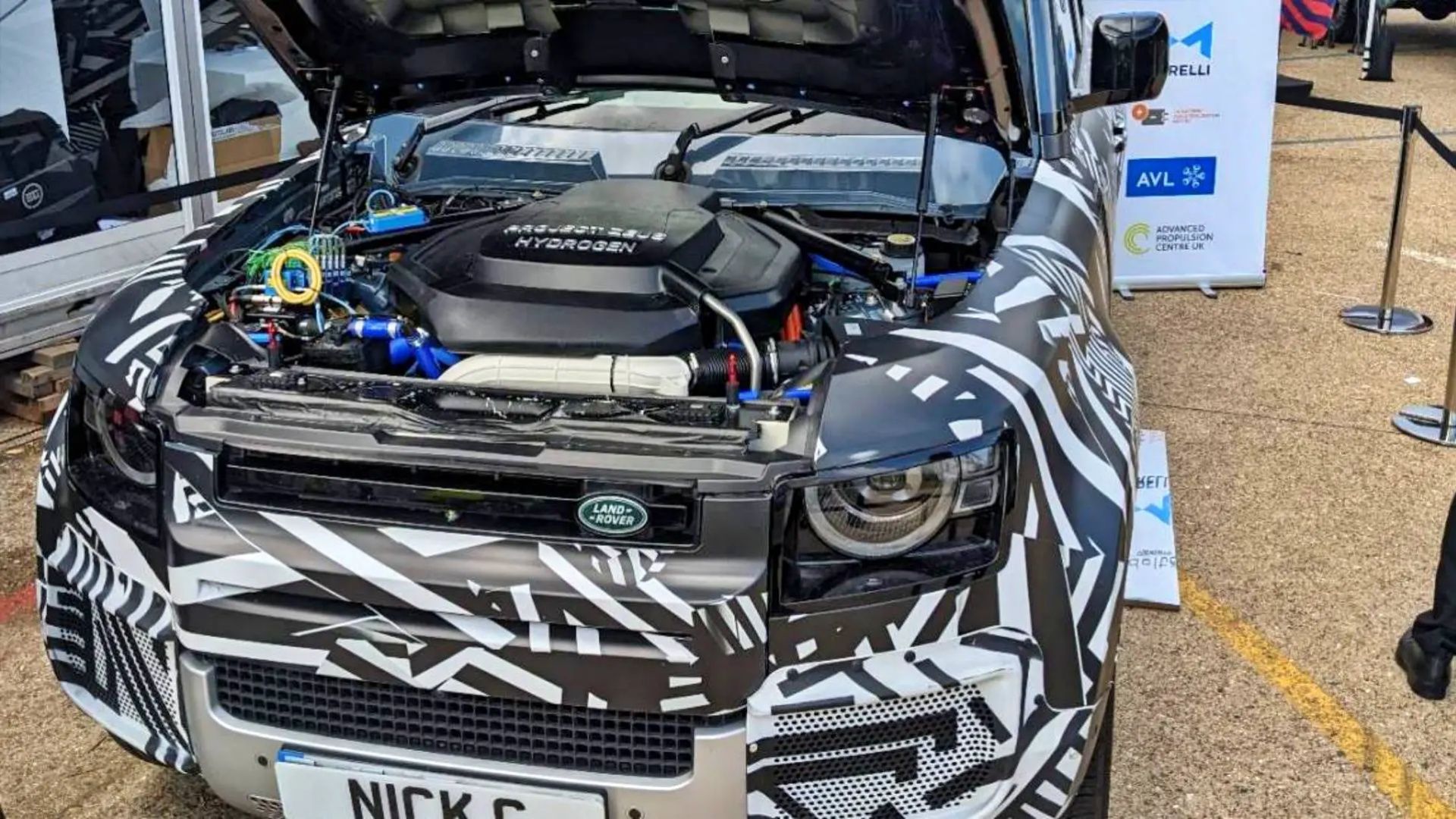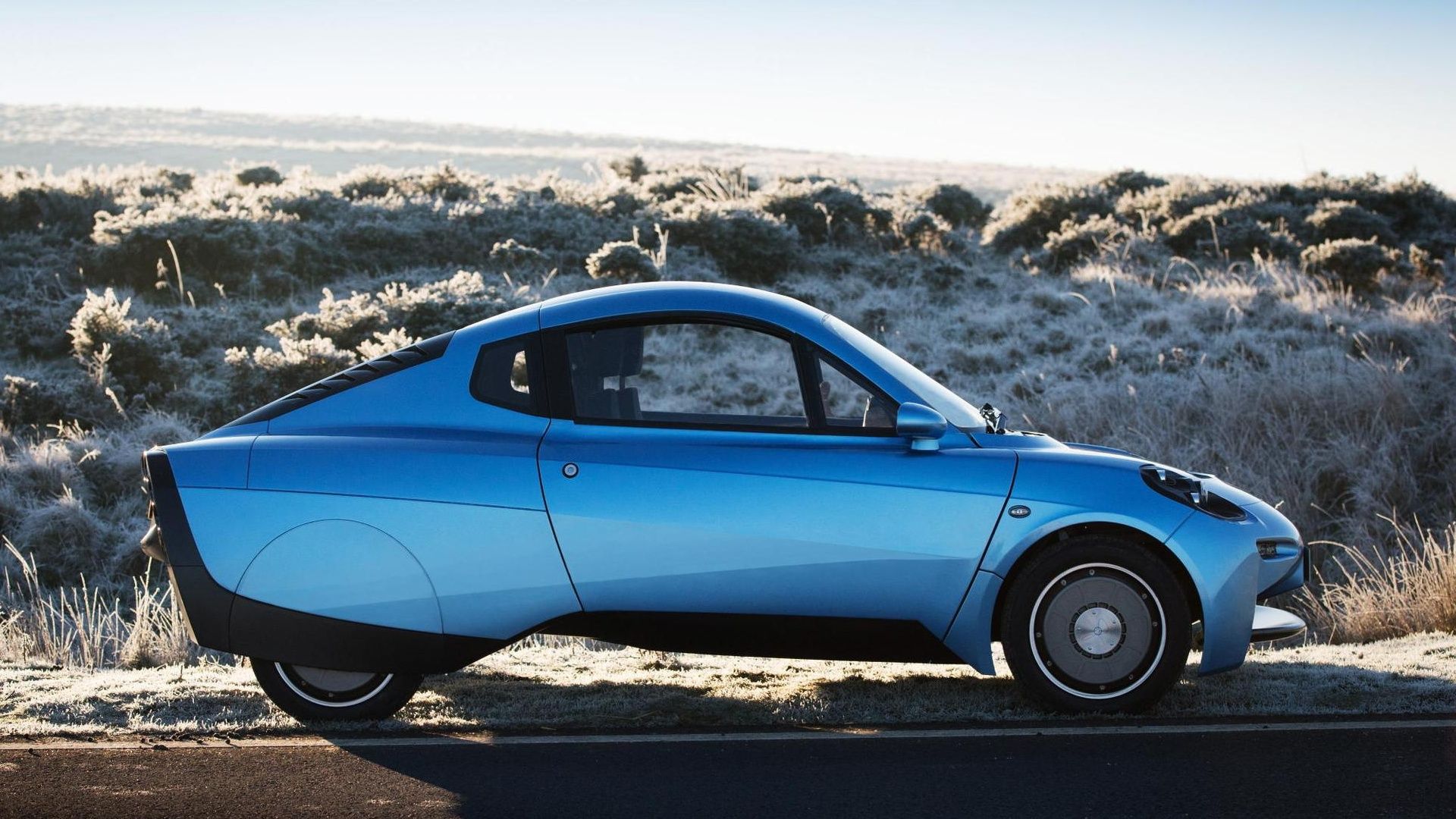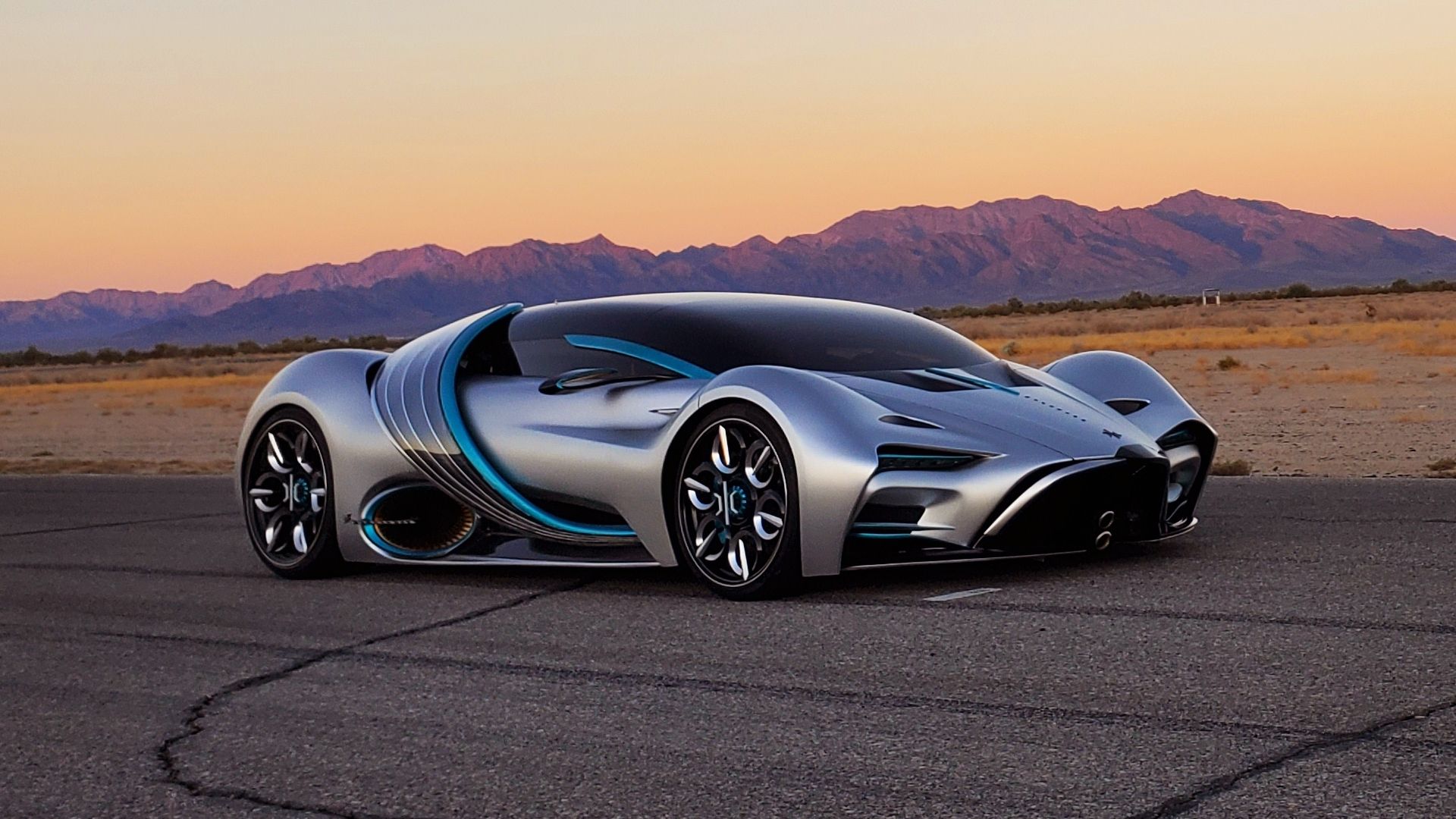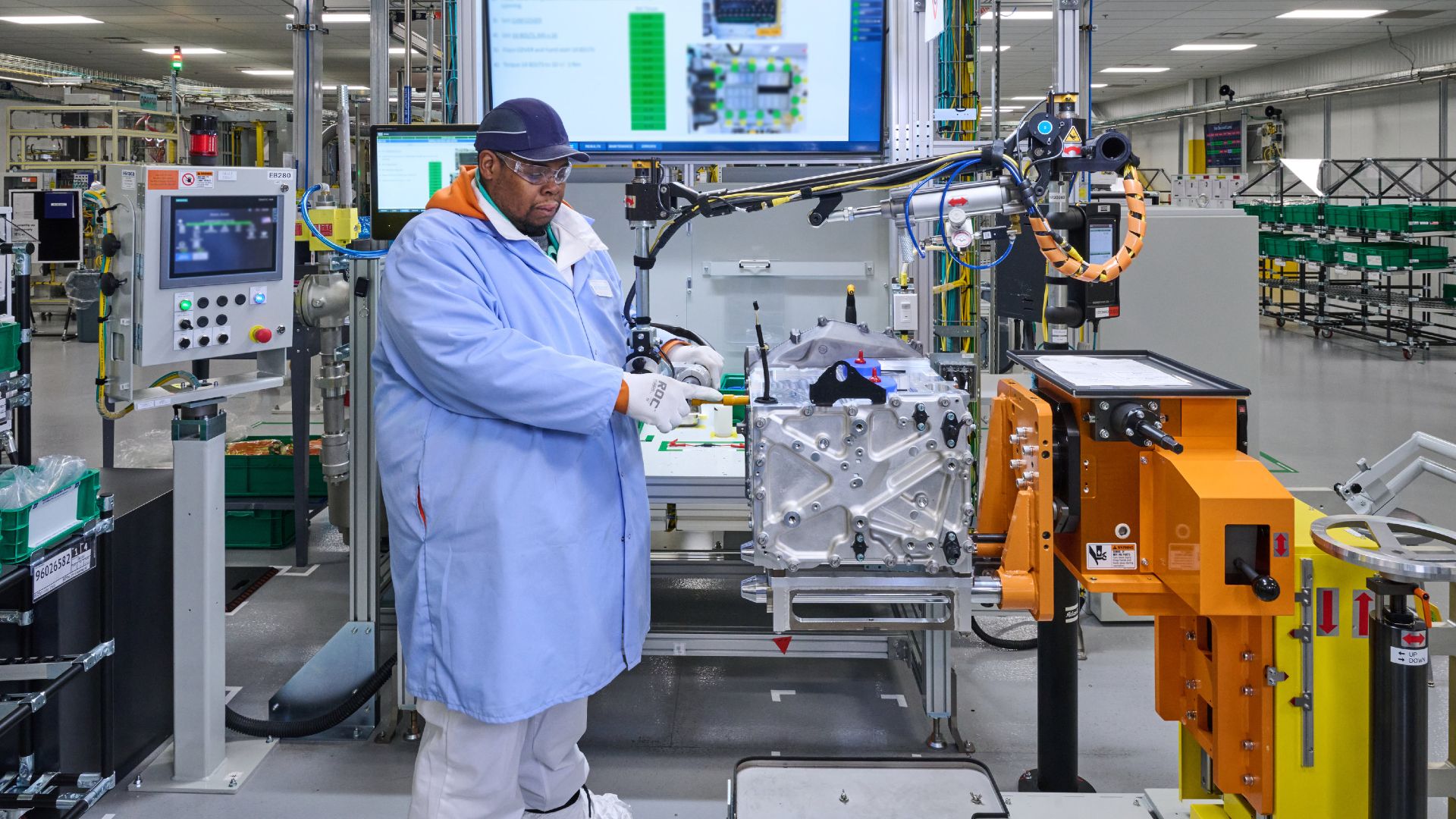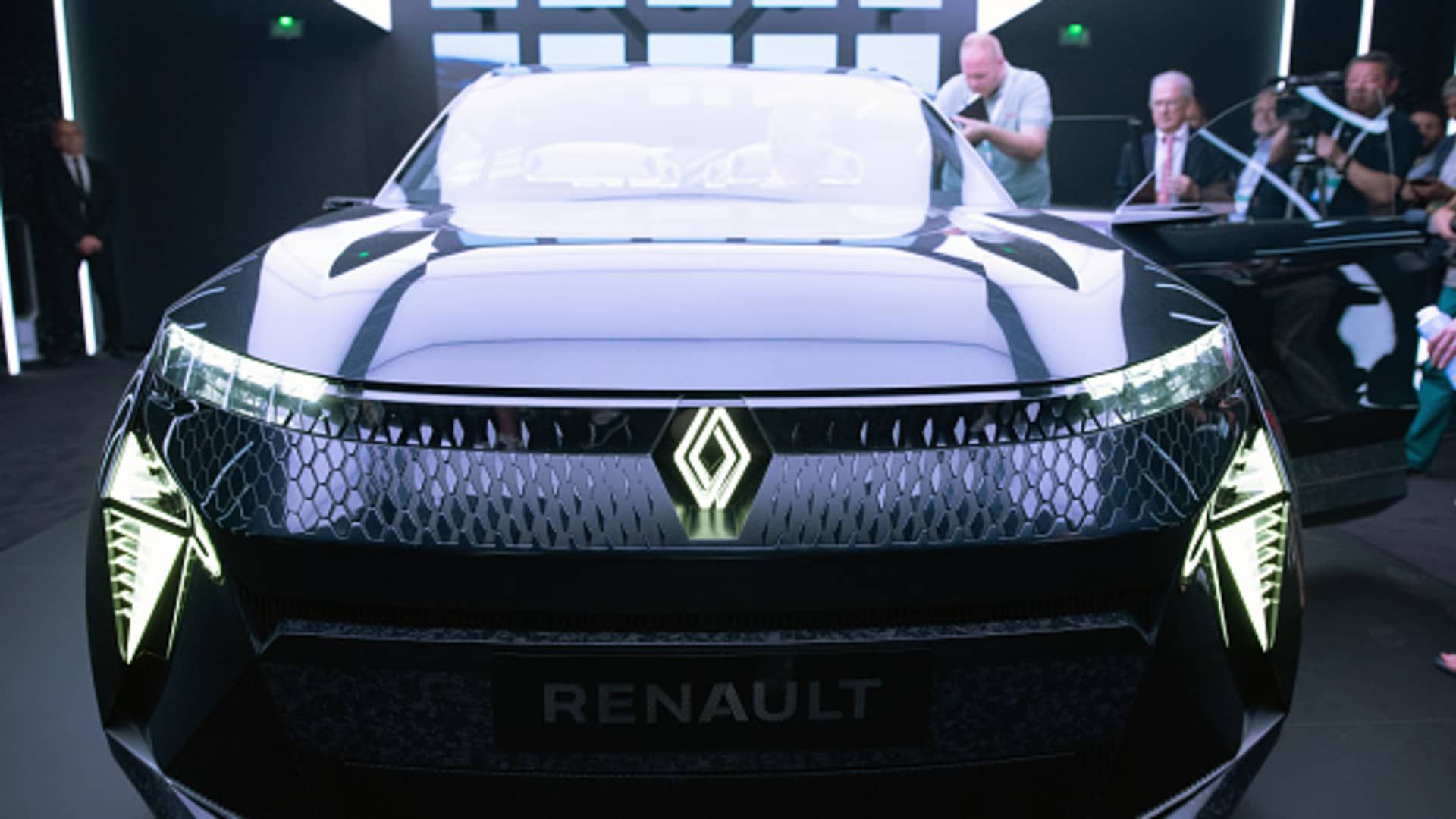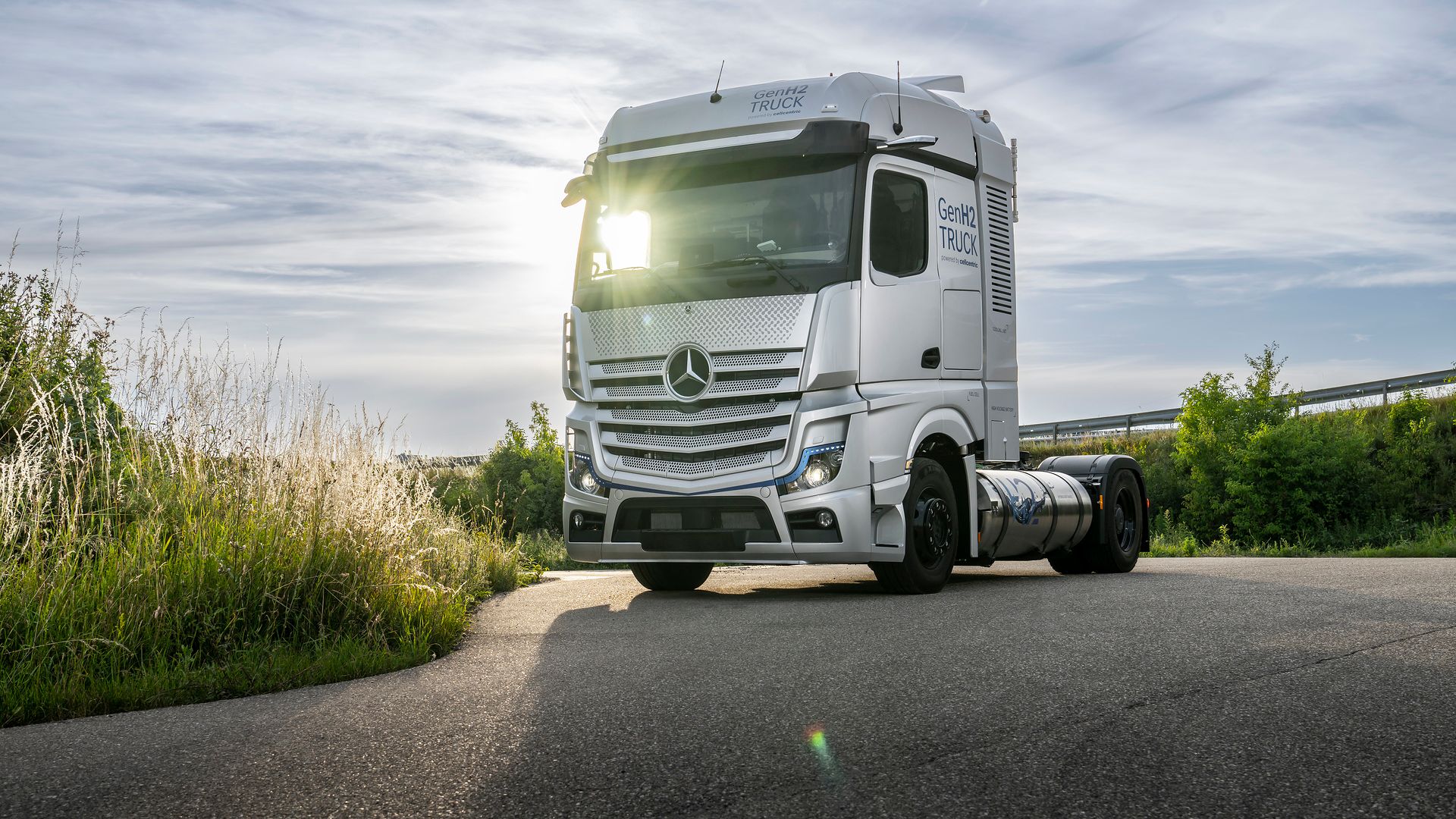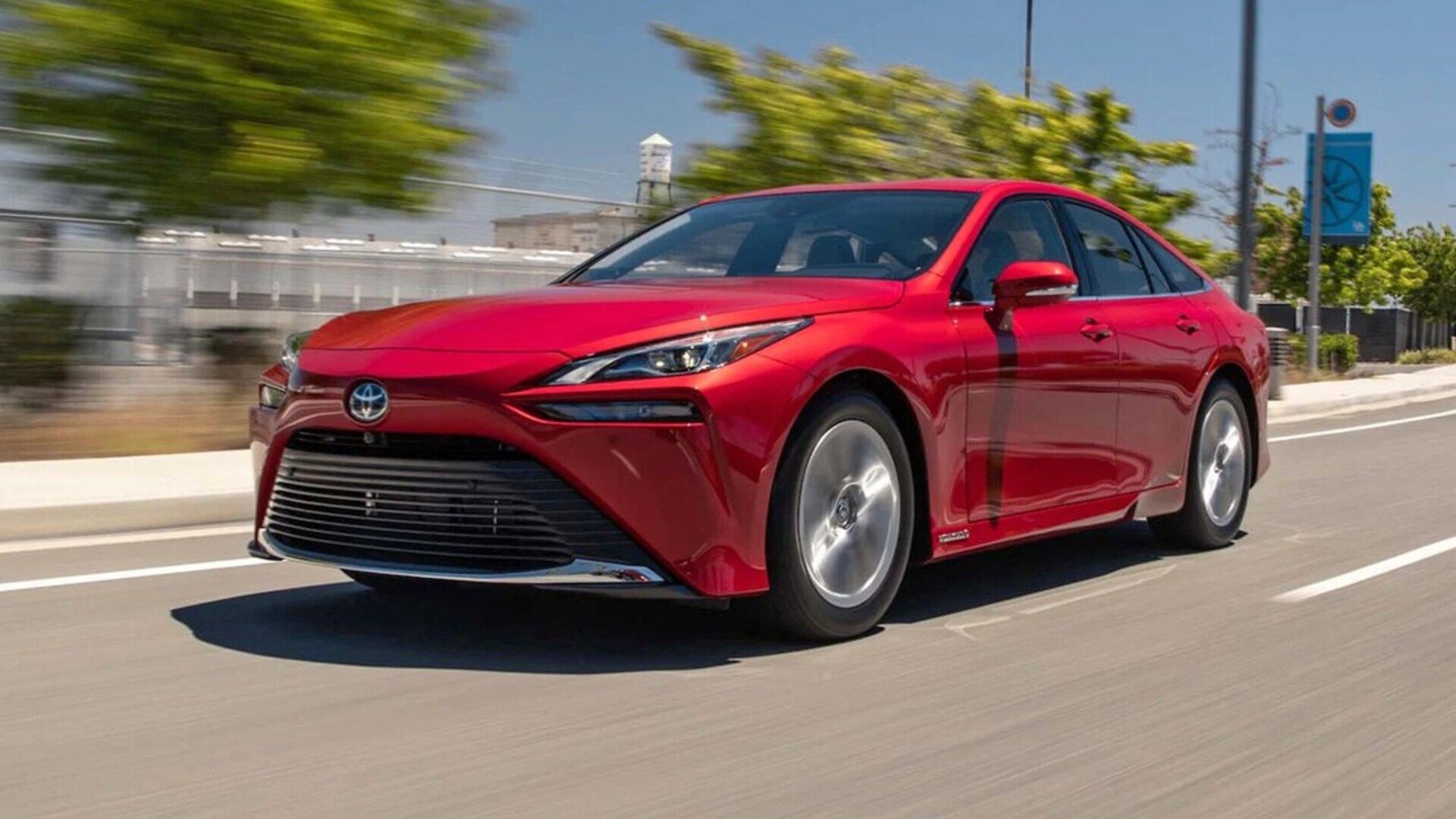Summary
- Hydrogen fuel cells are back as a zero-emission vehicle option, offering quick refueling and long ranges for driving.
- Major automakers like Toyota, BMW, and Hyundai are leading the charge in hydrogen technology development for future vehicles.
- From fuel cell SUVs to high-powered hypercars, hydrogen is proving to be a versatile and powerful alternative fuel source.
The motor world is changing. The impact of fossil fuels on the environment is becoming more and more apparent. To that end, governments around the world are pushing automakers away from internal combustion engines, and towards alternative options. One of the growing alternative fuel sources is hydrogen. Hydrogen can be used in two different ways to power cars, combustion, and using a fuel cell to generate electricity.
Fuel cell technology is nearly 200 years old, invented by Sir William Grove in 1838. The first modern fuel cell was invented in 1932 by Thomas Francis Bacon. Bacon Fuel Cells have been used in high technology like Nasa spacecraft. GM pioneered automotive fuel cells with its Electrovan in 1966. However, due to a virtually nonexistent hydrogen network, and the inefficiency of the early technology, hydrogen was not seen as viable in the auto industry.
In recent years, however, hydrogen fuel cells are back. Toyota in particular has led the charge and developed huge leaps in fuel cell and hydrogen storage technology. While electric power is all the rage in the news, hydrogen is a true zero-emission, non-toxic fuel, that, like gasoline, can get to a full tank in under five minutes. We've got a list of companies that are ready to make fuel cell technology the dominant powertrain of the future.
In order to give you the most up-to-date and accurate information possible, the data used to compile this article was sourced from various manufacturer websites and other authoritative sources, including Car And Driver.
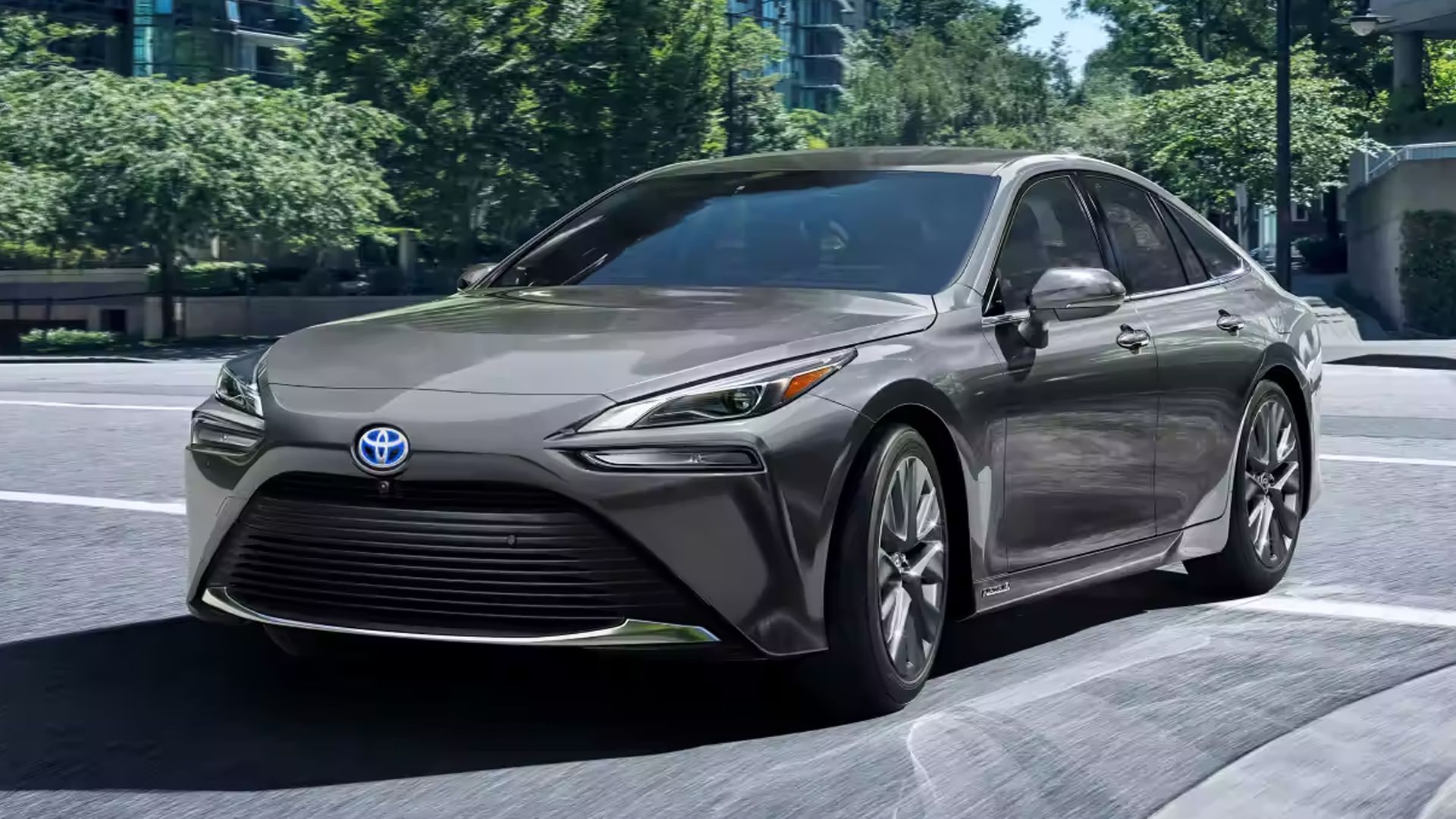
Here’s How Much It Costs To Refill A Hydrogen-powered Toyota Mirai
The Toyota Mirai is offered with $15,000 worth of free hydrogen for six years. This is how much you'll pay to refuel once that runs out.
10 Honda
Honda was one of the first players in the fuel cell space in the 2000s. It developed a viable fuel cell vehicle for the road to debut at the 2007 Los Angeles Auto Show.
Honda's Clarity Was A Hydrogen Fuel Cell Production Car From 2008-2014 and 2017-2021, It Has Plans For More
The original Clarity was a hydrogen-only offering released to the public in 2008. By 2010, the first edition of the Clarity was offered at a $600 per month lease that included insurance, maintenance, and hydrogen costs. It was only available in the southern part of California, where there is infrastructure for hydrogen fueling.
By 2014, Honda suspended the production of the first Clarity. They then expanded the line in 2017 to include the Clairty Electric and the Clarity Plug-In Hybrid. The new models had an improved range of over 100 miles. However, production for all three models was cut by 2021.
2021 Clarity Specs
|
Engine |
Hydrogen Fuel Cell Powered Electric Motor |
|
Transmission |
Automatic Single Speed |
|
Horsepower |
174 HP |
|
Torque |
221 LB/FT |
|
Driveline |
Front Wheel Drive |
|
0-60 MPH |
8.1 Seconds |
|
Top Speed |
111 MPH |
|
Range |
366 Miles |
(Data was collected from Honda)
Even though Honda has suspended production of the Clarity, it has partnered with GM to build a plant that will eventually produce hydrogen-fuel cell CR-Vs. Honda and GM partnered to develop an all-new fuel cell for the effort. The plans have been in the works since 2017. The new factory sets both companies up to be huge players in the future of emission-free vehicles.
9 BMW
BMW first entered the hydrogen scene in mid-2007 with the Hydrogen 7, which was a 7 Series that ran on a hydrogen combustion engine that could also run on traditional gasoline. The Hydrogen 7 ran from 2005 to 2007. Then, after more than a decade, BMW launched the Hydrogen iX5, a fuel-cell version of the X5.
The Hydrogen iX5 Hit The Road In 2023
The Hydrogen iX5 is a fuel-cell-powered electric SUV from the German automaker. One of the few luxury hydrogen vehicles, the Hydrogen iX5 has not had a price set, but it will probably be over $85,000 like its EV counterpart. While the iX5 is on a pilot program with vehicles out on the streets in South Africa, California, and other areas, it is not currently available for sale or pre-order. Here are some specs for the iX5.
BMW iX5 Specs
|
Engine |
Dual Fuel Cell Electric Motor |
|
Transmission |
Automatic Single Speed |
|
Horsepower |
401 HP |
|
Torque |
524 LB/FT |
|
Driveline |
Rear Wheel Drive |
|
0-60 MPH |
6.0 Seconds |
|
Top Speed |
115 MPH |
|
Range |
300 Miles |
(Data was collected from BMW)
We still don't have a commercial release date for the iX5, but it is a viable hydrogen vehicle on the roads in several countries. We're patiently awaiting the market release of the Luxury HSUV. BMW sees fuel cell EVs (FCEVs) as a compliment to battery-powered EVs, not a competitor. BMW believes fuel cells will play a big part in the future of their luxury offerings.
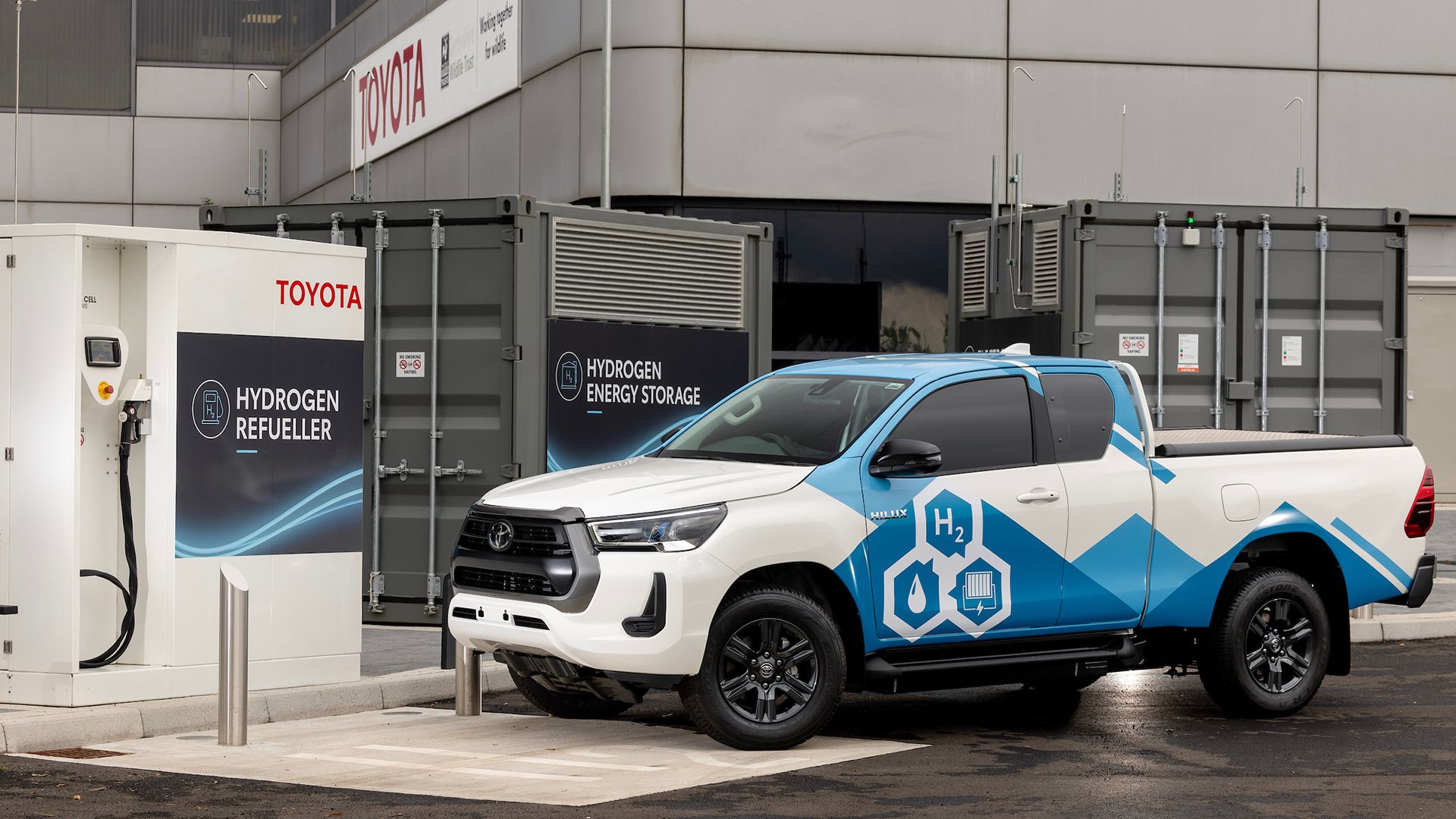
Toyota's "Hydrogen Sharing Network" Could Make Refuelling Your Hydrogen-powered Car A Whole Lot Easier
Thanks to recent patent filings, we've learned what Toyota has in store with its "Hydrogen Sharing Network", and it could be a great move.
8 Hyundai
Hyundai has been a major player in the zero-emission space in the 2020s. Its Kona and Ioniq 5 EVs are helping to define the future of electric travel. However, Hyundai also has been invested in fuel-cell hydrogen technology for a few years. Its ix35 was one of the first mass-production FCEVs, and its Nexo debuted at the 2018 CEX, Consumer Electronics Show.
The Korean Automaker Pioneered The First Hydrogen-powered SUV
The Nexo was the first hydrogen fuel cell SUV ever to be released to the public. It became available in the U.S. in late 2018, and is available in the UK and Australia as well as in 2021. A hydrogen SUV follows in the footsteps of the original Electrovan, a larger vehicle to carry a hydrogen fuel system. The Nexo starts at about $62,000. Here are some more specs.
Hyundai Nexo Specs
|
Engine |
Fuel Cell Single Electric Motor |
|
Transmission |
Automatic Single Speed |
|
Horsepower |
161 HP |
|
Torque |
291 LB/FT |
|
Driveline |
Front Wheel Drive |
|
0-60 MPH |
8.4 Seconds |
|
Top Speed |
105 MPH |
|
Range |
354 Miles |
(Data was collected from Hyundai)
As the Nexo is one of the few commercially available hydrogen vehicles in the US, Hyundai is one of the major players in the American hydrogen space. Hyundai, on its own website, says it is "All in for green hydrogen". Hyundai also has a partnership with Swiss company H2 to develop fuel-cell-powered trucks called Hyundai Hydrogen Mobility. They back up that promise to be all in with their passenger and commercial vehicles.
7 Land Rover
A surprise player in the fuel cell space is Land Rover. Known for its luxury off-roaders, Land Rover is not exactly who you think of when it comes to green technology. However, its parent company, Tata, does have a large electric division, and is invested in green technology. Land Rover has followed in the footsteps of its parent, and is working on an FCEV.
A Fuel Cell Defender Is In The Works
Nicknamed "Project Zeus" by the automaker, Land Rover released a prototype of the FCSUV at the 2022 Cenex LCV (a low carbon vehicle expo). The FCEV is a Defender, with its powertrain replaced by an electric motor with a fuel cell to power it.
We have not heard anything about Project Zeus since Cenex 2022, but Tata is in the process of developing not just a hydrogen fuel cell for cars, but one for a bus as well. Since the parent company is invested in hydrogen, it stands to reason that Land Rover will continue with its FCEV plans as well.

Toyota's "Hydrogen Sharing Network" Could Make Refuelling Your Hydrogen-powered Car A Whole Lot Easier
Thanks to recent patent filings, we've learned what Toyota has in store with its "Hydrogen Sharing Network", and it could be a great move.
6 Riversimple
Riversimple is a small Welsh company that makes hydrogen fuel cell-powered cars. It focuses on engineering to create the most efficient design possible. Its Rasa has a better drag coefficient than the Porsche 911. It weighs about a third of a Tesla Model 3. The small two-seater is designed to be as kind to the environment as it can be.
The Plucky Welsh Startup Wants To Take On The Big Guns
Riversimple has an interesting business model. It offers its cars as a service, not as a product. That means paying a monthly subscription to cover insurance, inspection, etc. It will also pay for fuel costs. It hopes this unique offering can not only help make cars more affordable for people, but also help reduce waste and be better for the environment.
The subscription model means that cars will all be used. Riversimple believes the lower-cost solution will also create accessibility for those with lower income. Right now, the cars are only available in the UK.
Riversimple Rasa
|
Engine |
Fuel Cell Quad Electric Motor |
|
Transmission |
Automatic Single Speed |
|
Horsepower |
73 HP |
|
Torque |
125 LB/FT |
|
Driveline |
Four Wheel Drive |
|
0-60 MPH |
<10 Seconds |
|
Top Speed |
60 MPH |
|
Range |
300 Miles |
(Data was collected from Riversimple)
Riversimple is still growing. Time will tell if its unique subscription model will be effective, but it is certainly a unique player within the space.
5 Hyperion Motors
Hyperion is another start-up on our list. Where Riversimple is focused on the small, efficient car, Hyperion is focused on power. Raw, insane power. It is essentially the hydrogen equivalent of Rimac. Its XP-1 is a hypercar with a hydrogen fuel cell system. With its bonkers styling and ridiculous power, it shows the world that hydrogen is not just for boring old efficiency, it can also be used to make driving machines worthy of racetracks and bedroom posters.
The American Upstart Is All In On Hydrogen
The XP-1 is a proof of concept that hydrogen fuel cells will not make the world a more boring place. Its "hyper-cell" is designed to not only deliver power, but also be efficient and more sustainable to create. The XP-1 is the future of driving technology. It is fuel cell power taken to the extremes of automotive capability. Here are the bonafides.
Hyperion XP-1 Specs
|
Engine |
Fuel Cell Quad Electric |
|
Transmission |
Automatic Three Speed |
|
Horsepower |
2,038 HP |
|
Torque |
Unreleased |
|
Driveline |
Four Wheel Drive |
|
0-60 MPH |
2.2 Seconds |
|
Top Speed |
211 MPH |
|
Range |
1,016 Miles |
(Data was collected from Hyperion)
There really cannot be enough said about making a 2,000+ horsepower hydrogen fuel cell car. It is a testament to how far technology has come since the Electrovan. What's even better is that it will have a 1,000-mile range. Traditional supercars have very limited MPG and electric supercars run out of charge very quickly. 1,000 miles means the Hyperion XP-1 can take you from Nottingham to Nice on an epic grand tour.
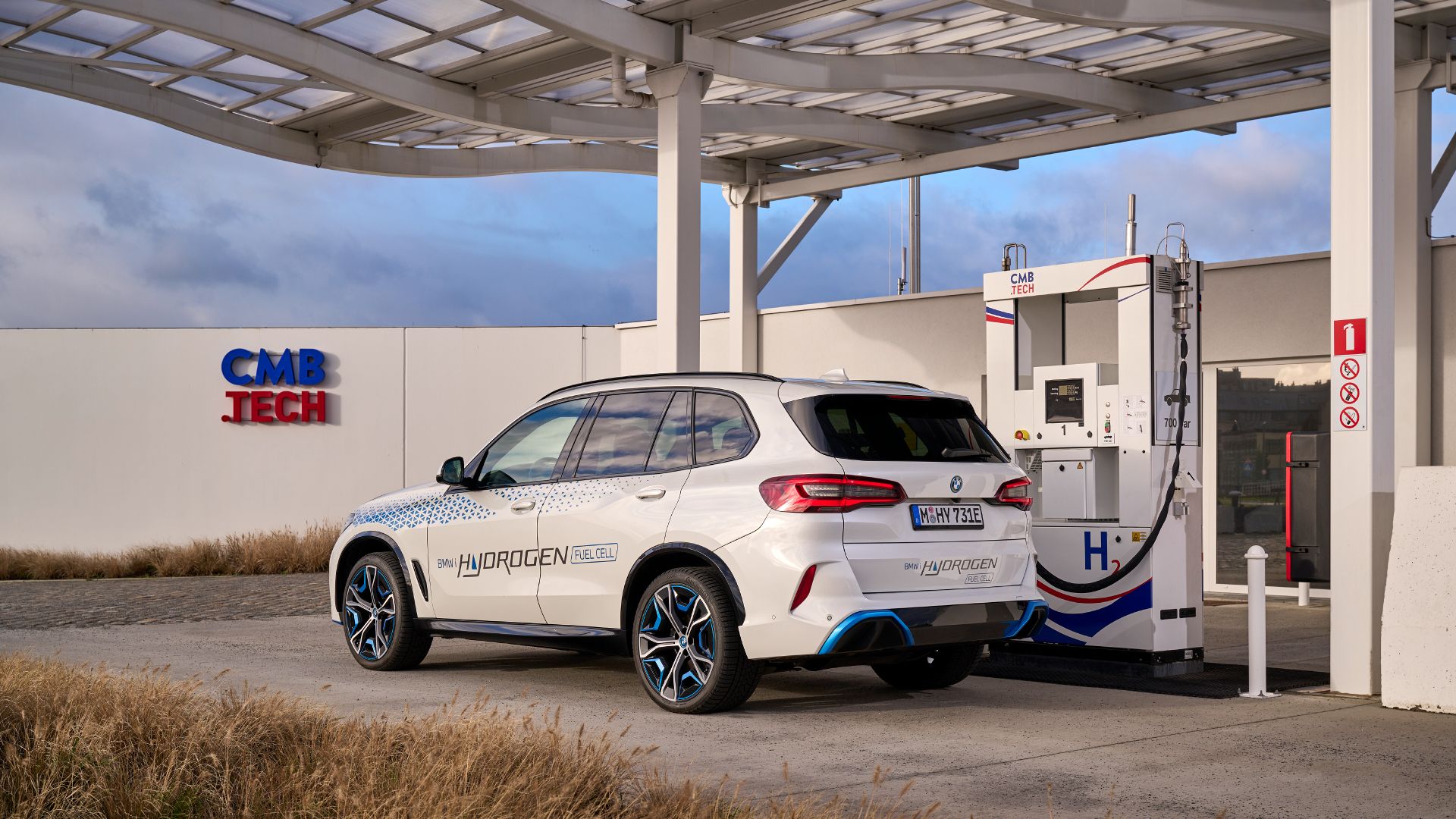
Why Your Next Purchase Should Be A Hydrogen Car
Hydrogen cars represent a promising and eco-conscious choice for the future of sustainable transportation.
4 General Motors
While GM did invent the hydrogen-powered passenger vehicle, it has not made one since. But things are changing for the US auto-giant. It has begun to invest in fuel cell technology again, 50+ years after its original foray into fuel cell technology.
GM Has Partnered With Honda To Execute Its Fuel Cell Plans
Honda and GM's partnership is called Fuel Cell Systems Manufacturing. They've teamed up to build a fuel cell that they believe will be significantly less expensive to make than Honda's most recent Clarity fuel cell. The team-up has also resulted in a Michigan manufacturing plant.
GM still has no plans to put a fuel cell into a passenger vehicle. Instead, it plans on selling the fuel cells to heavy machinery companies to use in generators and construction equipment. With its huge investment in EVs, hydrogen may still play a part in the passenger vehicles to come.
3 Renault
Renault has a unique approach to its hydrogen fuel cell. French automakers always take a unique view on cars and how to build them. Headlights for example were required to be yellow in France until 1992. Their approach to hydrogen appears to be no different. Renault's Scenic Vision has that classic French motoring twist.
The French Manufacturer Plans To Synthesize EV And Hydrogen Technology
The Scenic Vision will not power the motor directly with the fuel cell, it will power a battery that will then power the electric motor. Essentially, the hydrogen fuel cell will act as a range extender like in the BMW i3. Renault is taking a clever approach to combining electric and hydrogen concepts. It is also leaning into the environmental side of the picture as well.
The Concept Scenic Vision is made of 95-percent recyclable material, and 70-percent has already been recycled. If Renault can make even half of that a reality it will have one of the most eco-conscious cars ever made.
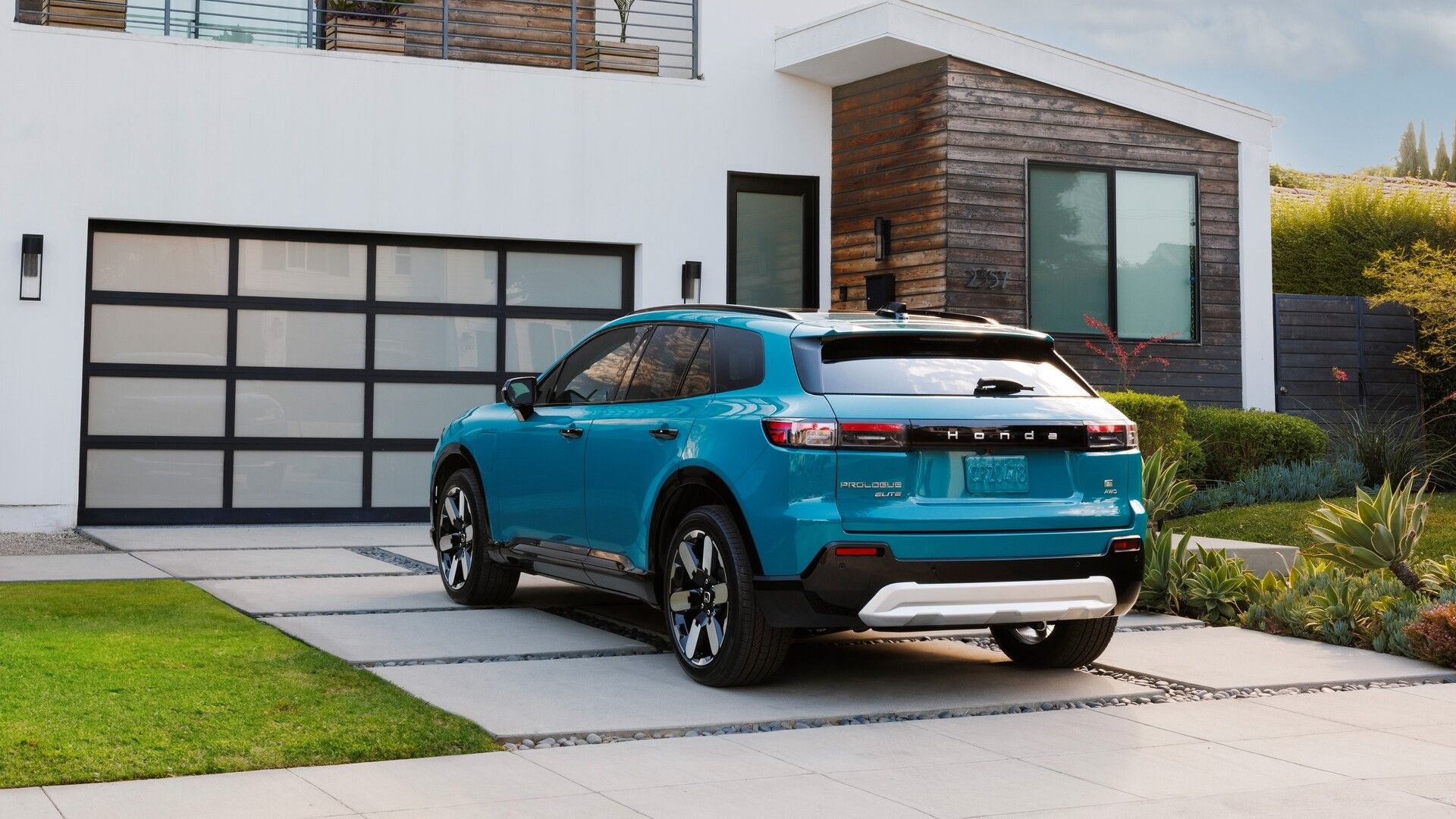
What Honda’s Partnership With GM Means For Its EV And Hydrogen Future
Honda and GM are collaborating on hydrogen fuel cells and a few EVs, and here's how it impacts the former's future.
2 Mercedes-Benz
Mercedes was very early to the party when it came to fuel-cell passenger cars. The F-Cell was developed as a concept in 2002, and models were available to the public in 2010. A GLC F-Cell did come out in Germany in 2018 but was scrapped in 2020. Mercedes had left the passenger fuel cell game citing the fact that EVs were more viable for their needs. Nevertheless, Daimler-Mercedes is not done with fuel cells.
Mercedes May Have Given Up On Fuel Cell Cars, But It's Still Developing Hydrogen-Powered Trucks
Daimler-Mercedes partnered with Volvo to build its fuel cell-powered trucks. The trucks are now being filled with liquid rather than gaseous hydrogen. Liquid hydrogen carries significantly more power potential than the gas form, meaning a longer range and more efficient trucking. The trucks have a reported range of about 1,000 km or over 650 miles. Amazon has partnered with Mercedes to test the trucks in 2024. The hydrogen trucking revolution is here. First Toyota, now Mercedes.
1 Toyota
Toyota is the king of automotive hydrogen fuel cells. It has been developing hydrogen passenger cars since 1992. It has had cars on the road since the early 2000s. The Mirai is its baby. Despite having lackluster sales, the Mirai will soldier on, because Toyota believes in hydrogen. They don't just make fuel cells, they also have developed liquid hydrogen combustion engines. It even pushes it hydrogen technology for racing.
Toyota Is The Premiere Hydrogen Fuel Cell Manufacturer In The Auto World
The culmination of Toyota's hydrogen experience is its Mirai. It is a bit of an oxymoron, because the Mirai is mostly a simple car, one to be used for commuting, the grocery store and the school run. However, this is what proves Toyota's hard work in the Mirai, because it proves that hydrogen is just as reliable and usable as traditional gasoline.
Toyota Mirai Specs
|
Engine |
Fuel Cell Single Electric Motor |
|
Transmission |
Automatic Single Speed |
|
Horsepower |
182 Horsepower |
|
Torque |
300 LB/FT |
|
Driveline |
Rear-Wheel Drive |
|
0-60 MPH |
9.1 Seconds |
|
Top Speed |
106 MPH |
|
Range |
402 Miles |
(Data was collected from Toyota)
The Mirai is a brilliant example of the capability of hydrogen. However, the world has not caught up with its technology. Not only does the Mirai cost about as much as a BMW or Lexus at over $50,000 base price, running it is also expensive. Toyota is working on improving infrastructure in California, but as of now, hydrogen infrastructure is not at pace with the capability of hydrogen cars.
However, the industry believes in hydrogen. Not only are there major players deeply invested, but there are also upstarts building dream cars, and filling niche spots within the market. The future looks good for hydrogen, as long as the supply can catch up to the vehicles.


